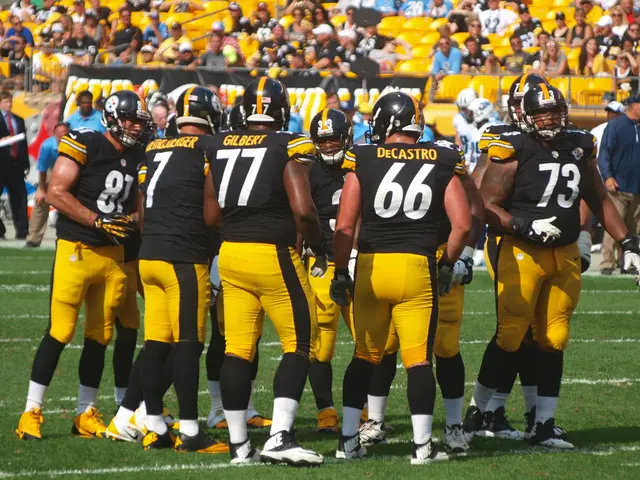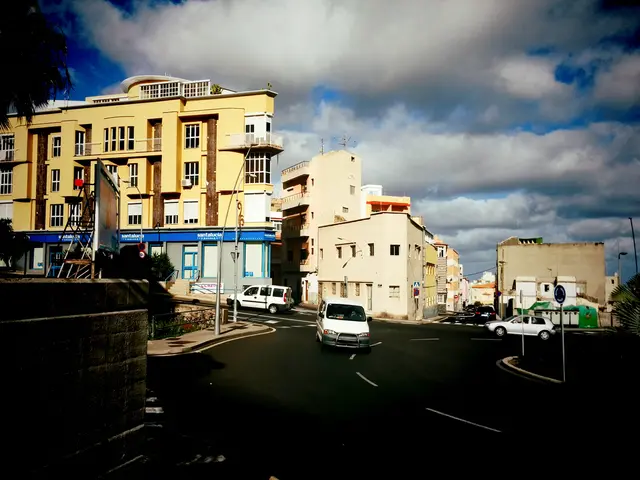A Quick Peek at Steady Groceries Ahead - With Some Notable Exceptions: Coffee Hitting All-Time Highs
Edeka Anticipates Continued Stability in Food Prices - Current Coffee Costs deemed "Historically High"
Get ready for some pocket-friendly shopping trips: The supermarket behemoth Edeka predicts no additional price surges for the year. Although certain goods are skyrocketing in cost, plenty others have seen a significant drop.
Edeka has forecasted a moderate food sector price increase around 2%. This trend, according to Mark Rosenkranz, CEO of the leading regional company Minden-Hannover, will likely persist throughout the rest of the year.
Following the significant cost hikes in 2022 and 2023, Rosenkranz states that inflation is finally leveling out to "normal levels." However, he highlights coffee prices as a noticeable exception, presently at "historically" high levels. On a brighter note, products such as cooking oil, chocolate, and butter have become more affordable again.
Edeka Minden-Hannover managed to boost sales by 2% to €12.24 billion last year despite the grim economic environment partly due to higher prices. This growth was paired with a slight increase in volume, Rosenkranz added. Despite earning €146 million in profit after tax - a decline from about €179 million - the company's outlook is positive.
Customers look to food purchases as a necessity, and Edeka's core business benefits from this stability. However, an increasing attention to prices can be observed among customers. Sales for Edeka's private label "Good & Cheap" have shown above-average growth.
Despite the stable core food business, Edeka is experiencing a reluctance to spend among consumers due to the unpredictable economic situation. This reluctance is particularly evident in self-service department store subsidiary Marktkauf which generates 20% of its sales from non-food items. While food sales increased by over 2%, other products saw a slight reduction. At Edeka itself, non-food items make up just 3%, making their impact less substantial. Rosenkranz expects this consumer reluctance to subside "at the latest by summer," but this is just a forecast, as potential trade restrictions are difficult to predict.
Edeka Minden-Hannover is the largest of Edeka's seven regional companies in Germany. Its distribution area stretches from the Dutch to the Polish border, covering East Westphalia, Lower Saxony, Bremen, Saxony-Anhalt, Berlin, and Brandenburg. With more than 600 independent retailers operating almost 1,500 stores and employing nearly 76,000 people, the cooperative association remains a significant economic force in the region.
Coffee on the Rise: Causes and Potential Solutions
Historically high coffee prices in 2023 resulted from a combination of factors, including climate change, supply chain disruptions, escalating production costs, and currency volatility. To combat this situation, possible solutions involve addressing these challenges by implementing climate-resilient farming practices, enhancing supply chain management, adopting sound economic and trade policies, promoting market diversification, and investing in pest and disease management.
[1] Economist Intelligence Unit: "Coffee outlook 2023"[2] Reuters: "Global coffee prices increase on supply concerns"[3] Financial Times: "Trade war fears hit coffee prices"[4] World Bank: "Climate-resilient coffee production: An assessment of challenges and opportunities for smallholder farmers in Asia"
In light of the escalating coffee prices, Edeka's community policy aims to address this issue by promoting climate-resilient farming practices and enhancing supply chain management. Meanwhile, the employment policy of Edeka could benefit from general-news sources on coffee production, such as reports from the Economist Intelligence Unit, Reuters, Financial Times, and World Bank, to find potential solutions for the increasing costs. Although lifestyle choices like food-and-drink may be affected by these high coffee prices, customers can still find affordable options in Edeka's 'Good & Cheap' private label section, ensuring that essential shopping trips remain affordable.







